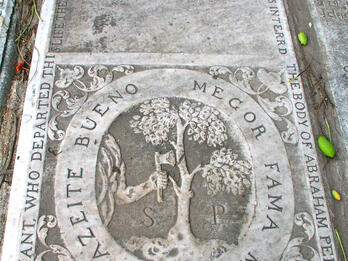Chronicle on the Death of Sultan Osman II and the Reigns of Mustafa and Murad
Sunday, 15th of the aforementioned month [Elul; 10.9.1623]. The Sipahis [feudal cavalrymen] and the Janissaries [professional infantry corps] and all the king’s slaves and ministers came to speak with the king [Sultan Mustafa], as they heard he is not fit to rule. They asked the Grand Vizier about it, and he answered that it is true, and that he is unfit. All came, together with the religious authorities, to enthrone Sultan Murad, son of Sultan Ahmed, may he rest in heaven, who was fourteen years old and good looking. He was seated on the royal throne and all bowed in front of him and called “long live the king.” Sultan Mustafa was locked in a room as before. The city was now calm, and everyone went home happy and good hearted. May God will it all in our favour, and in the favour of all the Jews our brethren, Amen. [ . . . ]
Tuesday, 10th of the aforementioned month [Tishre; 4.10.1623]. The Sultan presented his army with presents as is the custom of new kings [Cülus Bahşişi]. The Jews were demanded to give as a loan 5,000 gold coins, may God fulfill this loss and may it be ransom money for our souls, Amen. On that day, he appointed Süleyman Ağa Kapīcīlar Kedhüdasī [superintendent of ushers and the controller of the warders] instead of Murad Ağa who was banished. On that same day, [another?] Murad Ağa was appointed governor of Aleppo instead of Mustafa Paşa. [ . . . ]
Tuesday, 3rd of the aforementioned month [Tevet; 26.12.1623]. An escapee from Iznemit arrived hurriedly saying that Abaza’s people came to the city and killed many Janissaries. The heart of the king and his viziers melted of fear, and they were walking around weeping and mourning. They finally sent another five hundred Janissaries to fight him. On that very day they took the miserable Lady Rika and imprisoned her, and beat her fiercely on account of her serving the mother of Sultan Mustafa, implying she was doing witchcraft to prevent the ascension of Sultan Murad. They also took İbrahim Efendi, the father-in-law of Sultan Osman, blaming him too in practicing witchcraft, as he was a famous magician. And they put him in prison where the prisoners condemned to death are kept and they beat him fiercely but he admitted none of the accusations.
The two were beaten every morning and evening but they admitted nothing.
On the eve of Monday, 9th of the aforementioned month [1.1.1624], they were both strangled to death. Lady Rika was buried among Jews in accordance with the orders of the Grand Vizier, but the body of İbrahim was thrown to the sea, even though his wife was of the royal family. At that same day, the king sent many people to find Mere Hüseyin Paşa in order to execute him for stealing from the treasury during Sultan Mustafa’s reign. The king’s men inspected thoroughly every house in town, but in vain. [ . . . ]
On the eve of Friday, 26 of the abovementioned month [Adar; 17.3.1624], a Turkish woman threw her son into a water reservoir that belonged to a Jew in the Balat quarter, within the city walls. The boy was five years old and was found on the next day by Jews who pulled him out of the cistern while still alive, as he had not fallen into the water but landed on a stone. They asked him who threw him, and he replied that his mother threw him there in order to extort money from the Jews. They then brought a judge and documented the boy’s testimony and signed it according to the law. When some of the Sipahis heard about it, being so wicked and false men, they came with a group of evildoers and took the boy, saying that the Jews had thrown him into the cistern according to their custom [to use non-Jewish boys’ blood] for the Passover, in order to extort money from the Jews. They [the Sipahis] took five Jews, R. Yehuda Hasid among them, chained hand and foot to the prison where the prisoners who are condemned to death are kept, and thought of exterminating all the Jews. The Jews prayed and God had mercy on His people and thwarted their scheme. They paid some money, ransom for their souls, God willing.
The Jews decided not to prepare the Ḥaroset in the congregations but each in his own home in order to prevent the slave women [serving in Jewish houses] from claiming that they use blood. The Jews were released from prison and the court issued a document declaring the whole matter was a lie and that the Jews are innocent and that no one should attempt such libel again.
Credits
Published in: The Posen Library of Jewish Culture and Civilization, vol. 5.



